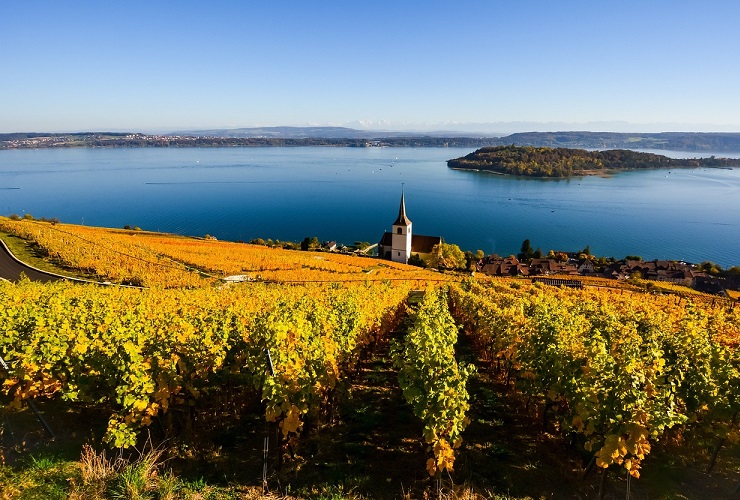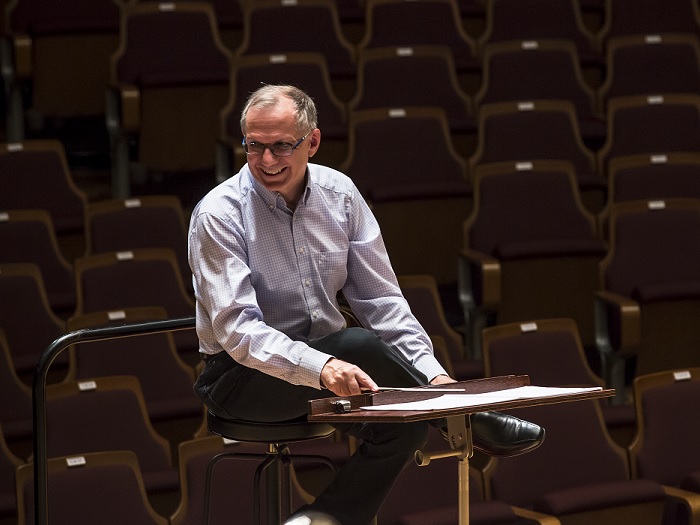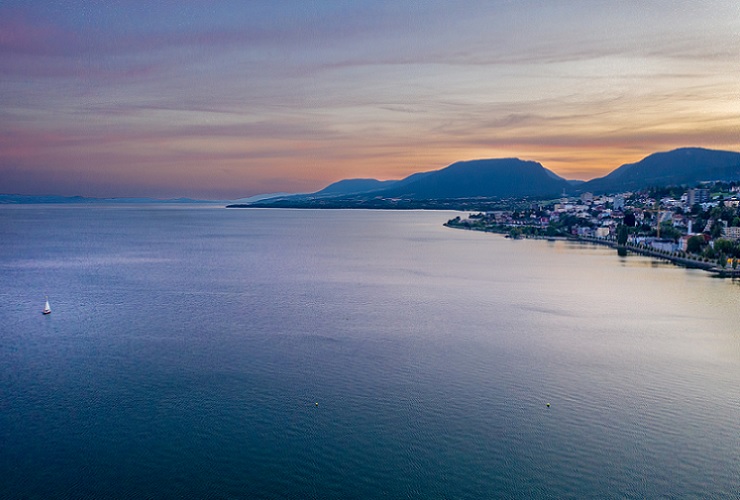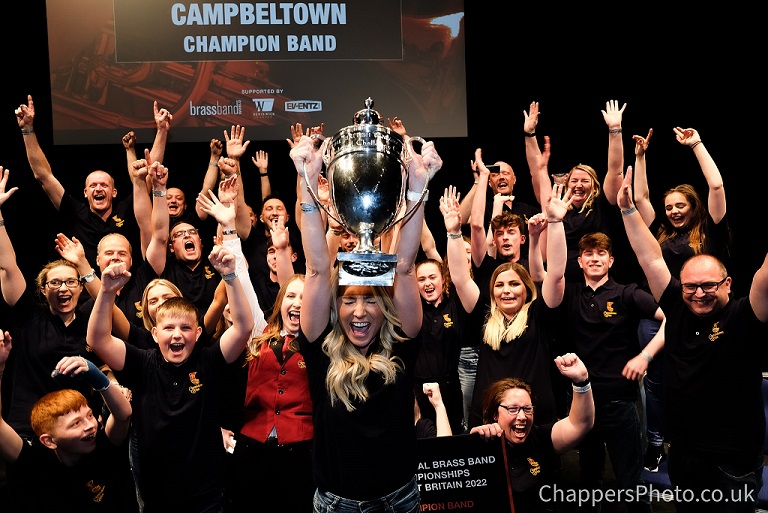
Philip Sparke’s inexhaustible talent to write wonderfully inventive works from the smallest fragmentary inspiration is quite remarkable.
In the case of his ‘Lakeland Variations’ his starting point is a mere three note cell that is heard in the opening bar of the work on the timpani.
Lucid musicality
What follows is 11 minutes or so of lucid musicality - an initial introduction followed by four ‘variations’, each different in harmonic and melodic style in a nod by the composer to the structural form of Gilbert Vinter’s ‘Variations on a Ninth’ (he does not quote from it though).
Play what’s written and the music simply leaps to life off the page, colourful, textured and engaging.
Like Vinter, Sparke’s hallmarks of clarity and purpose are embossed throughout every bar of the score – dynamic and style instructions, tempo and articulation.
Play what’s written and the music simply leaps to life off the page, colourful, textured and engaging.

Easily translatable
And although the composer’s preface makes no suggestion that it is inspired either by the geographical beauty or the many brass bands of the region of Seeland (Lakeland) in the north-west part of Switzerland and its trio of lakes - Morat, Neuchatel (below) and Bienne (above), there is no mistaking where we are.
His music is easily translatable in any tongue.
Mr Sparke has been a regular visitor to the Jura area where the lakes lie on different canton borders between the French and German speaking inhabitants (Murtensee, Neuenburgersee and Bielersee in German). His music is easily translatable in any tongue.
Opening
The opening introduction (marked Lento maestoso crotchet = 66) simply sets things in motion using the percussion foundation (three players kept busy throughout) to build ensemble texture and draw the music forward to the first Variation.
It is marked Doppio movimento, and although twice the speed it retains an essential base of rhythmic poise. The thread of that opening motif is again heard (over a little nod to ‘Triumphant Rhapsody’ perhaps in the accompaniment?) with a playful solo cornet leading the way. The detailing on each line is light but forensically defined - right to the whiplash finish.
The detailing on each line is light but forensically defined - right to the whiplash finish.
The underlying pulse remains in Variation 2 (dotted crotchet = 132). Although the lilting flow is less energised with a lighter dynamic feel, it soon builds; the ensemble growing in complexity and moving as one before ebbing away in volume and pace with the maracas giving things a slightly Siciliano ending.

Sleepy interlude
Variation 3 is a short repose – a sleepy interlude featuring a quasi-euphonium cadenza instructed to be played ‘a piacere’ (at pleasure). It acts as a bridge to Variation 4, that flows with expressive contributions from the cornet over a ‘well marked’ legato accompaniment.
This is the passionate heart of the piece – full, warm and as embracing as a bowl of Emmental cheese fondue in providing a luscious, gooey intensity of pleasure.
This is the passionate heart of the piece – full, warm and as embracing as a bowl of Emmental cheese fondue in providing a luscious, gooey intensity of pleasure.
Finally, Variation 5 drives things to the close – marked Molto vivo (although still only the same tempo pulse as the opening variation).
It’s free flowing fugal Sparke, with material reprised as the horns initially lead the way. The music bounces around the ensemble, sometimes with cameo interventions (with the percussion adding colour, texture and rhythmic stability as accurate as a Swiss train platform clock), before the whole ensemble takes up the reins to close with a flourish.
Test of ambiton and competence
‘Lakeland Variations’ may well have been written for the 20th anniversary celebrations of the Seelander Jugend Brass Band, but as anyone who has heard the standard of young Swiss players (especially at their solo competition and at the National Championships) can vouch – they are mature performers in every sense, and this music proves that in full.
It is a real test of ambition and as well as competence for any band wishing to be claimed National Champion.

Title winners
Plenty for the experienced trio of judges in Alan Bourne, Anne Crookston and Mark Wilkinson to enjoy then.
It is a real test of ambition and as well as competence for any band wishing to be claimed National Champion.
Last year’s winner was Campbeltown Brass who really did give one of the great contest performances of the year under conductor Stephanie Kennedy to take the title back to Scotland. If any of the 19 bands can deliver on stage in the same manner, they will take some beating.
Theirs was the first Scottish victory at the event since 1997, whilst since 2010 the title has headed to Wales on three occasions (2010, 2013 and 2015), Yorkshire three times (2016, 2019 and 2021), the North West three times (2014, 2017, 2018), the West of England (2011) and the North of England (2012).
The Midlands is looking for their first victory since 2004, whilst London & SC has to go back to 1977.
Iwan Fox
Second Section:
Sunday 17th September
Test piece: Lakeland Variations — (Philip Sparke)
Abergavenny Borough
Alder Valley Brass
Chiltern Hills
Chinnor Silver
Denmead Brass
Diggle
Durham Miners' Association
Foss Dyke
Irvine & Dreghorn
Knottingley Silver
Meltham & Meltham Mills
Newmilns & Galston
Newport Borough
Otterbourne
Rolls-Royce (Derby)
Soundhouse Brass
Tewit Silver
Valley Brass (Haydock)
Whitworth Vale & Healey













